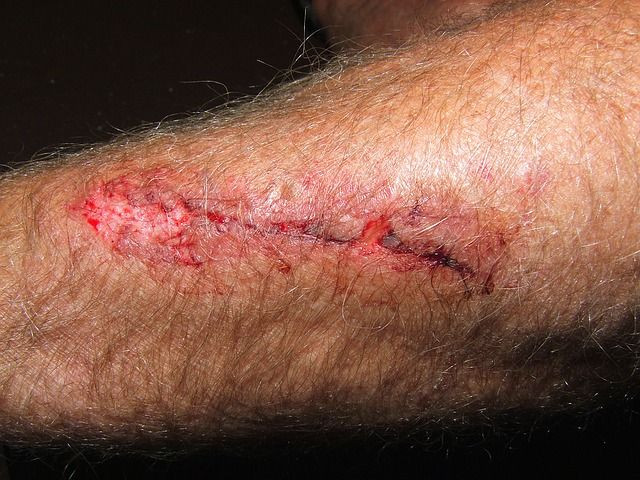Is My Wound Infected? Pus And Other Signs To Watch For

It’s among the grossest injuries you can have — a gaping, bleeding skin wound. And even after you’ve cleaned up your scraped knee or elbow and put a band-aid on it, there’s still the tense waiting game of making sure it heals properly.
So for those of you who have ever pondered what is and isn’t healthy wound healing, let’s take a quick look at a few tell-tale signs.
What Does It Mean If Pus Is In My Wound?
Depending on the scale of the injury, a wound typically causes our cells to form a protective shell around and underneath it — what we call scabbing — and the surrounding skin becomes red or swollen.
In the best-case scenario, a clear white fluid then seeps out of the scab, which actually flushes out dead cells and cleans the wound in order for the body to start regrowing new tissue, and the swelling goes down. This renewal takes place around 5 days after the injury and formally begins the healing process, which might go on for several more weeks, according to the National Library of Medicine.
But if your wound starts secreting a thick, discolored, and oozing fluid we call pus, that unfortunately means your wound has become infected by microbial nasties. Pus is mostly made out of the dead white blood cells (who validly gave their all to defend your body against infection), mixed with tissue debris.
While worrisome, pus isn’t necessarily a sign of imminent danger. It means that you should keep a vigilant eye on any other symptoms of worsening infection, according to Drugs.com. These include:
A wound that continues to bleed through your bandage
Fever or severe pain
A wound that’s still hot to the touch or swollen five days after the injury
A wound that’s dark or bright red, or that’s started to smell foul
All of these are signs that the infection has spread further in your body and even that it’s started to kill off, or necrotize, your flesh — both very serious complications that require prompt medical treatment, such as antibiotics. So if you have any of these symptoms, don’t hesitate to get medical help as soon as you can. It just might save your life.



























